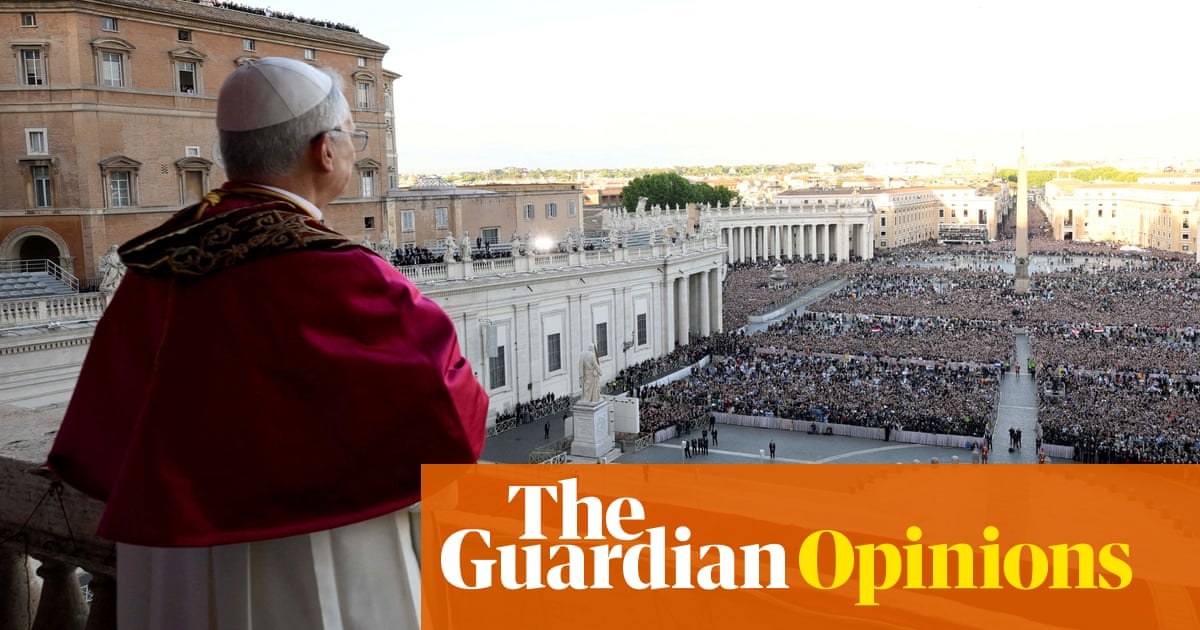What’s in a name? When it comes to a pope – everything. The white smoke from the Sistine Chapel earlier this evening told the world that anew pope to succeed Francishad been elected – and for the first time the pontiff is an American.
But if Donald Trump and his Catholic convert Veep, JD Vance, are ready to cheer, then they should think again. Cardinal Robert Prevost has chosen the name Leo XIV – and if you’re a papal Leo, you tend to be a reformer at the progressive end of Catholicism. That Prevost has decided to become Leo XIV will make Catholics think immediately of the last Leo – Leo XIII – and his 1891 encyclical or teaching document,Rerum Novarum, which outlined workers’ rights to a fair wage, safe working conditions and the rights of workers to belong to trade unions. If Pope Francis was the People’s Pope, then Leo XIV is all set to be the Workers’ Pope.
The Catholic church in the US is deeply divided. On the one hand, there are those who supported Trump in the last election and adhere to Vance’s view that there is an order of love which puts family first, then your neighbourhood, and far after that, the rest of humanity. Then there are those who agree with Pope Francis that this is a misreading ofChristianity– Leo XIV is likely to agree with his predecessor.
For Prevost is an American with a difference: a cleric who has spent much of his life overseas. While born in Chicago, he joined the religious order the Augustinians, then became one of their missionaries in Peru and was later made a bishop there by Pope Francis. That experience will have given him an entirely different perspective on the Americas, and the US’s role in the world – an understanding of how Latin America can view its giant neighbour with suspicion, and how, for many Latin Americans, the church is about liberation, rather than toeing a rigid line of tradition.
For cardinals in the conclave pondering who the next leader of the Catholic church should be, they will have considered leadership skills, pastoral experience, knowledge of the Vatican and toughness. Robert Prevost has all this in spades. He led his religious order as prior general, he has worked in a diocese, and since 2023 has been in charge of the Vatican department that chooses bishops. The view is that he has made having a compassionate or pastoral approach a priority for choosing who joins the episcopacy.
There will be some who will worry that Prevost blotted his copybook when it came to dealing with abuse crises in Peru. The sexual abuse of children and vulnerable people remains a stain on the Catholic church, and how he handles it will be one of his great tests.
While some LGBTQ+ organisations noted that, before Pope Francis was elected, Prevost expressed concerns about what he called “the homosexual lifestyle”, it is noticeable that one of the Catholic church’s leading advocates for gay people, the American Jesuit priest, James Martin, has described Prevost’s election as “a brilliant choice”, and said that Prevost is “kind, open and honest”.
There will be other challenges too: tackling the issues that the cardinals raised in their pre-conclave meetings, known as the general congregations. The 12 meetings threw up the need for a continuation of Pope Francis’s ambitions for a church that gives lay people more say – known as synodality; that needs to continue to speak up for God’s creation at a time of environmental crisis; and that needs to continue to find a role for women in the church. Pope Francis appointed a few women to senior Vatican roles, but the dominance of men in the church was all too evident in the past couple of days, as the 133 male cardinal electors filed into the Sistine Chapel to vote for the leader of the world’s 1.4 billion Catholics.
But if the cardinals were sure of one thing in their pre-conclave meetings, it was that the new pope must epitomise a pontifex – the old title for the pope meaning a bridge. In his words from the balcony of St Peter’s Basilica, Leo XIV told the 40,000-strong crowd and the millions of Catholics watching around the world that: “We must be a church that builds bridges.” The new Pope only has to look to his native country of the US to see how damaging division can be – yet he will know how damaging division in the church is too. The Workers’ Pope must be a Unity Pope, too.
Catherine Pepinster is a former editor of the Tablet
